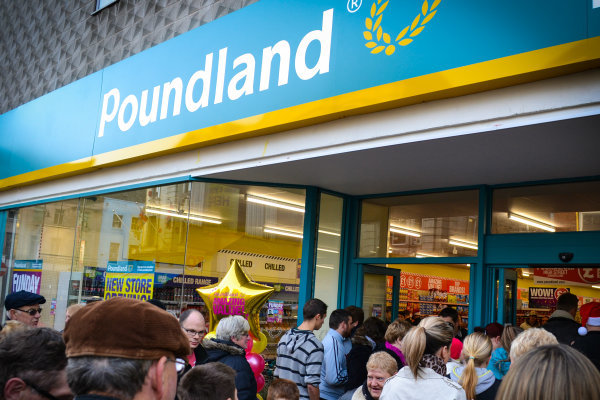Poundland hailed the “early sales uplift” that came with the acquisition of 99p Stores as the company‘s profits faltered.
The discount retail chain‘s profits before tax fell a staggering 43.5% to £5.3m in the six month period ending on 27 September, while like-for-like sales were down 2.8%.
However, CEO John McCarthy insisted this was not a “major problem.”
“We flagged that the results for this half this year would be less than last year because last year was an exceptional period where we benefited from… a late Easter that had quite an impact on sales, we had unusually fewer competitor openings, we had soft comparables and we had the one-off loom band craze.
We are, in fact, where we expected to be at this stage.”
He also added that the second half, which includes Christmas, delivers “the most significant contribution” to full year profits.
“We do operate on smaller margins… and it is about driving volumes.”
Poundland‘s expansion may be the proof behind McCarthy‘s enthusiasm. During the period, Poundland‘s UK and Ireland estate grew by 52 stores, with 30 opening in September and ten having opened so far in November. The company increased its target total estate for the region from 1,040 to 1,400.
The ‘Dealz‘ concept in Spain is also progressing well, having opened its tenth trial store.
Meanwhile, the conversion of the 99p Stores outlets has been accelerated. The Competition and Markets Authority gave its final approval for the acquisition of the rival chain in September, and the process of remaking the stores is well underway.
“The 99p Stores acquisition is a transformational deal for us, adding the equivalent of five years of UK organic growth and 40% to our store numbers in one go,” McCarthy continued.
“The early sales uplifts from the first converted stores are very encouraging and we now plan to accelerate the conversion programmes so that the vast majority of 99p Stores will be converted by the end of April 2016.”
However, McCarthy also warned of trouble ahead, saying that the National living wage would “add another £4m or so to the first year‘s costs.”


















